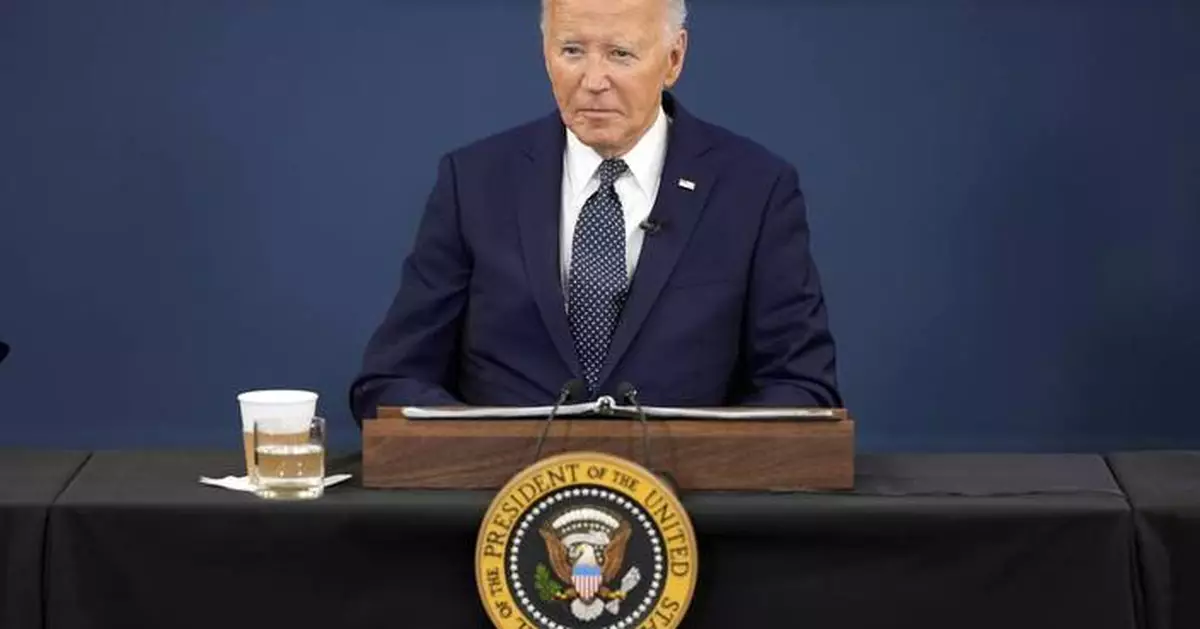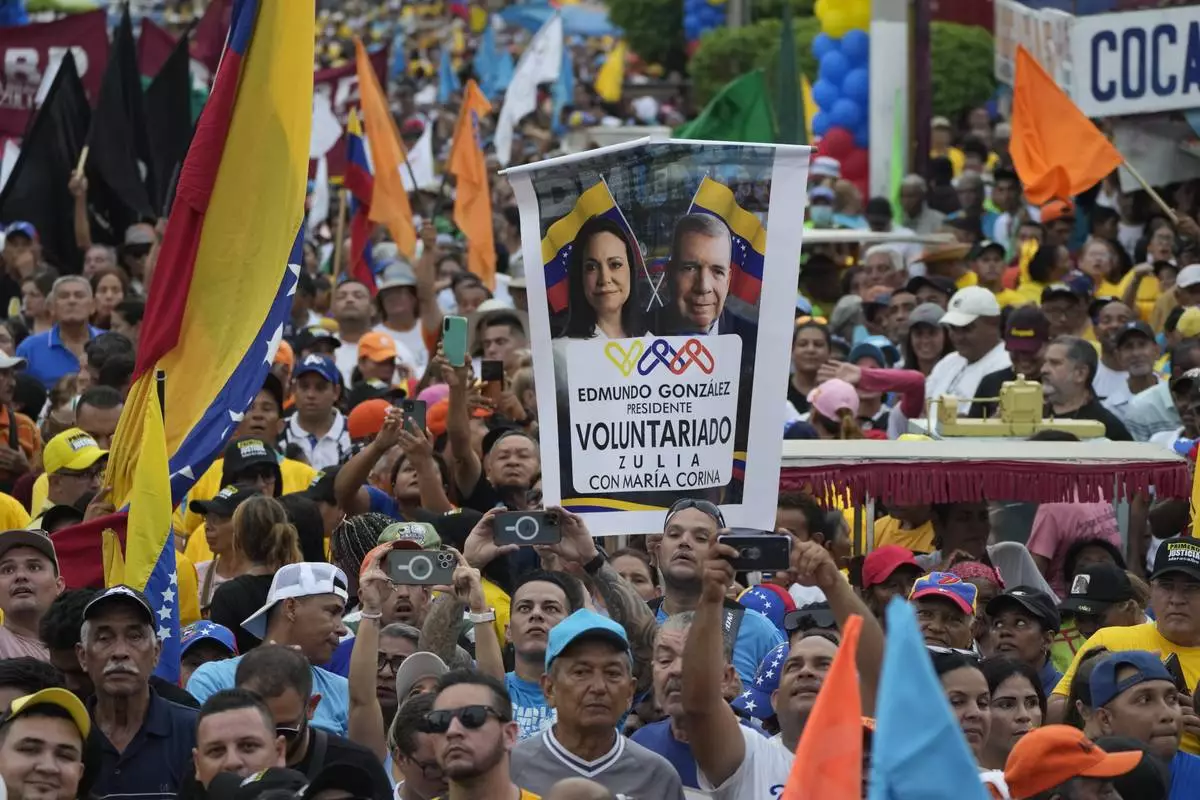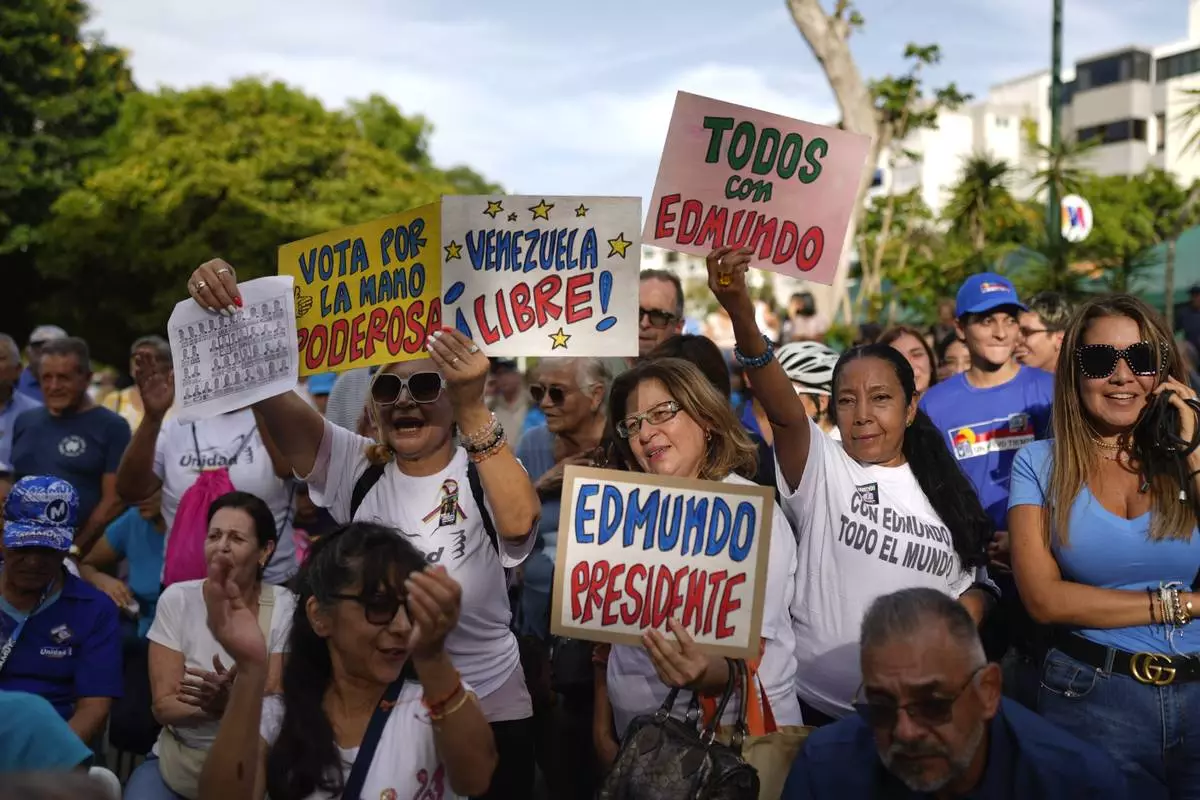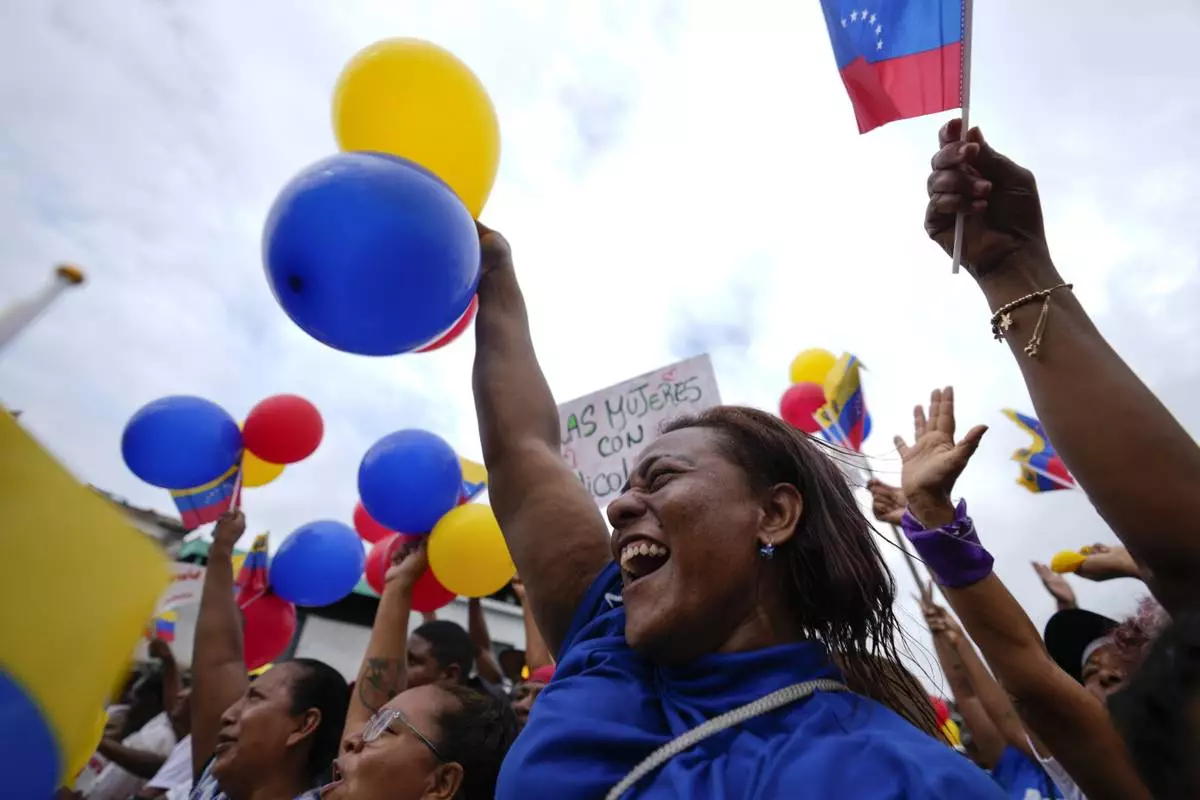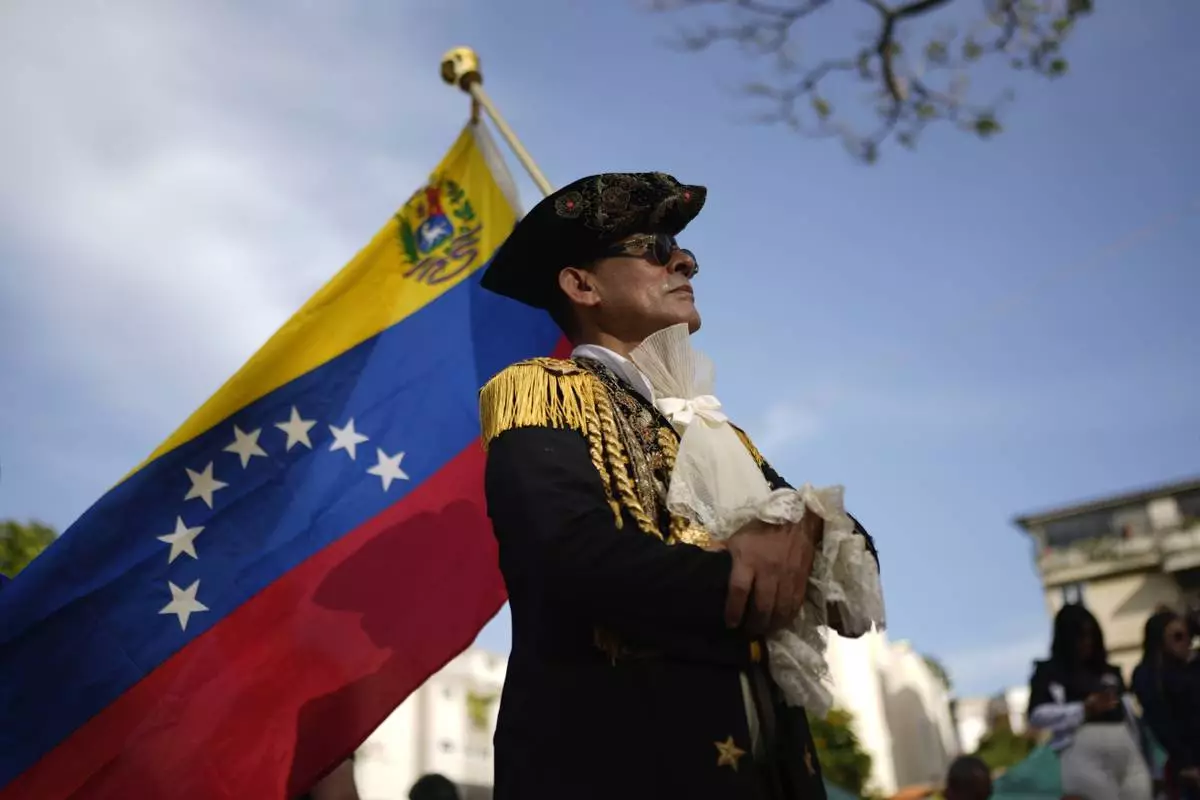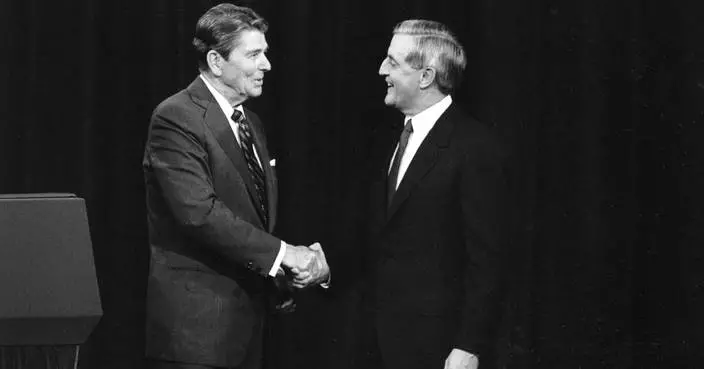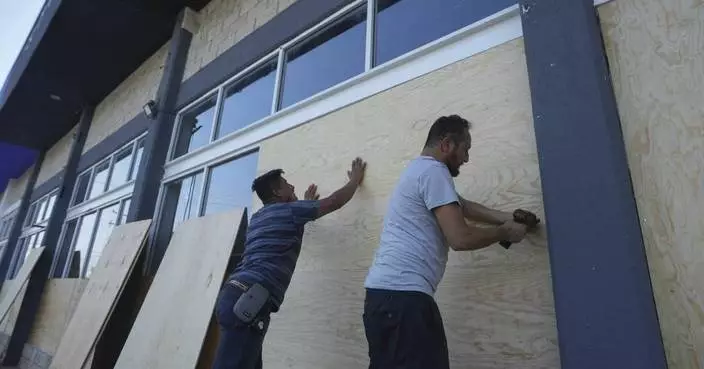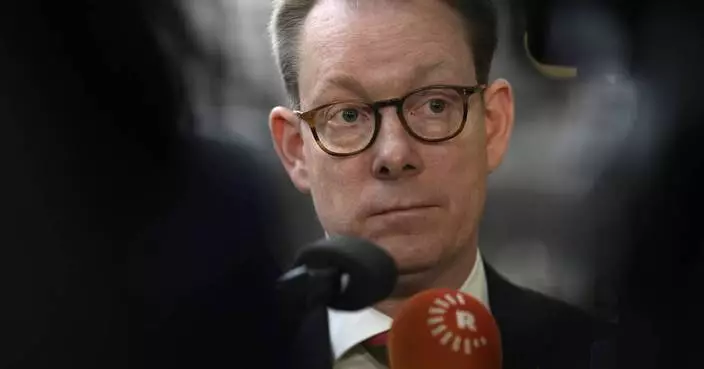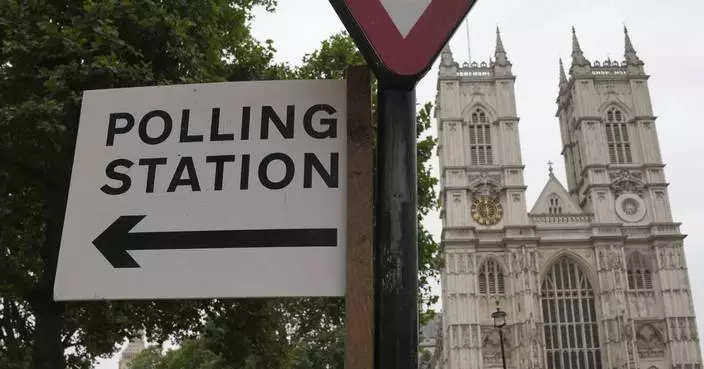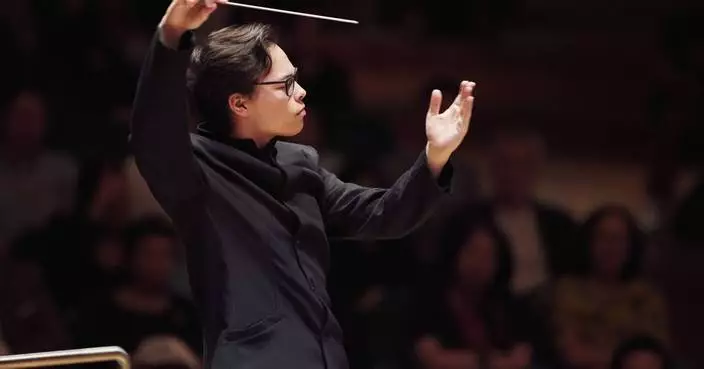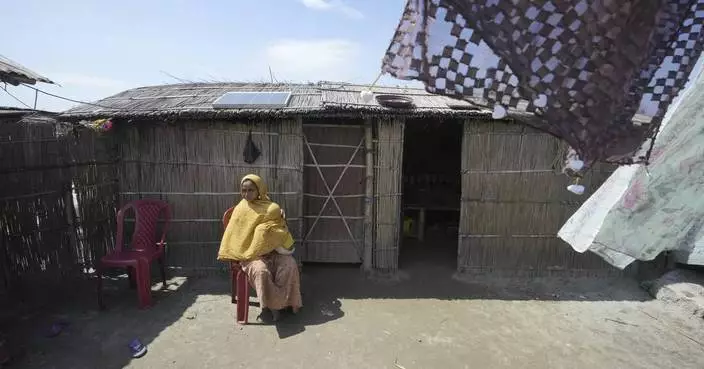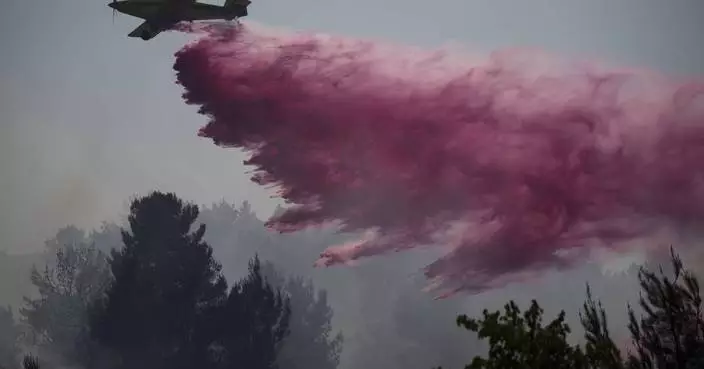WASHINGTON (AP) — Bernie Sanders describes President Joe Biden's recent debate performance as “painful.” In an interview, he says he's not confident that Biden can win this fall.
But the progressive senator from Vermont does not want Biden to step aside.
Instead, Sanders, who served as Biden's chief rival in the Democratic Party's 2020 nomination fight, is calling on voters to adopt “a maturity” as they view their options this fall.
“A presidential election is not a Grammy Award contest for the best singer or entertainer. It’s about who has the best policies that impact our lives," Sanders said. “I'm going to do everything I can to see that Biden gets reelected.”
That's putting the best face on it. Nearly a week after Biden’s disastrous debate performance, questions about his ability to remain in the race are intensifying among concerned Democrats. But there is also a growing sense that the party has trapped itself in a bad situation with no clear solution, caught in a primary process set up to protect Biden with elected officials unwilling to say out loud what some say quietly.
Some allies, like Sanders, are acknowledging Biden's problems but contrasting his policies and record with those of Republican Donald Trump. But many donors, strategists and party insiders want Biden to suspend his reelection campaign to avoid what they see as certain defeat come November.
Rep. Lloyd Doggett of Texas on Tuesday became the first House Democrat to call for the president to withdraw, saying “too much is at stake” for Biden to stay in the race and lose to Trump.
“He has the opportunity to encourage a new generation of leaders from whom a nominee can be chosen to unite our country through an open, democratic process,” Doggett said in a written statement. “My decision to make these strong reservations public is not done lightly nor does it in any way diminish my respect for all that President Biden has achieved.”
Former House Speaker Nancy Pelosi told MSNBC that she believes “it is a legitimate question” whether Biden’s halting performance is just “an episode or is this a condition.”
“When people ask that question, it’s legitimate — of both candidates,” Pelosi said.
Pelosi said she had not spoken with Biden since the debate, but she emphasized that the president is on “top of his game, in terms of knowing the issues and what is at stake.”
In private, people close to would-be Biden replacements — including California Gov. Gavin Newsom, Michigan Gov. Gretchen Whitmer and Vice President Kamala Harris — are having informal conversations about potential next steps should Biden abruptly change course and step aside.
Such conversations include talk of potential running mates, according to donors involved in the discussions. Names of potential vice presidential nominees that have surfaced include Kentucky Gov. Andy Beshear and California Rep. Ro Khanna.
Every one of the officials on such lists has publicly pledged support for Biden in recent days. And ever defiant, Biden’s team has downplayed the president’s political problems in a series of memos and private meetings with donors, strategists and party insiders.
“The voters are powerless,” said Nina Turner, a national co-chair of Sanders' 2020 presidential campaign, who now fears the Democratic Party cannot win again with Biden as the nominee. “The decision rests solely with him.”
Amid such frustration, key groups in Biden's political coalition — who had shown signs of fraying even before the debate — have begun to turn against each other.
Tim Miller, a prominent Biden supporter who once worked for Republican political campaigns, has come under attack in recent days from pro-Biden activists. They posted pictures of his family on social media after he raised concerns about Biden's general election prospects.
In an interview, however, Miller said elected Democrats privately tell him that they share his concerns.
"For me, the only risk right now is everyone shutting up and getting in line," Miller said. “It's the right time to have an open conversation about what the path forward is. Otherwise, we’re on a trajectory for another Donald Trump presidency.”
A handful of leading Republicans from the “Never Trump” camp met privately Monday with Biden campaign officials to encourage the president to leave the race.
The Biden campaign issued a memo over the weekend claiming he had lost little support after the debate. A separate internal memo also argued that he would retain the support of many voters who had a negative reaction to his primetime performance.
A CNN poll conducted by SSRS after the debate found that Biden’s favorability rating hasn’t shifted meaningfully, nor has the share of Americans who say they will vote for him in November. However, three-quarters of U.S. voters — and more than half of Democratic voters — say the Democratic Party would have a better chance of winning the presidency with someone else at the top of the ticket.
At the same time, the president's campaign announced on Tuesday a massive fundraising haul for the month of June. Overall, the campaign raised $127 million last month, including $33 million on the day of the debate and in its aftermath, according to the campaign. The numbers cannot be verified until federal filings are posted later in the month.
Democratic National Committee Chair Jaime Harrison made clear Tuesday that the party's rules leave no room for a Plan B.
Biden secured almost every delegate in the state-by-state primary process this spring. They are pledged by party rules to “in all good conscience” reflect the desires of voters who chose Biden. A virtual roll call vote to formalize Biden's status as the nominee is expected weeks before the party's national convention.
“The primary is over, and in every state, the will of Democratic voters was clear: Joe Biden will be the Democratic Party’s nominee for president," Harrison told The Associated Press. "Delegates are pledged to reflect voters’ sentiment, and over 99% of delegates are already pledged to Joe Biden headed into our convention.”
But Biden’s allies in key states across the country acknowledge the fear spreading through their party ranks.
Florida Democratic Party Chair Nikki Fried said she's worked to calm concerns about Biden's mental acuity by sharing her personal experiences.
“I have been in close-quarter meetings and conversations and interactions with the president where we’re able to talk high policy initiatives but also been able to just have a general conversation, like you’re talking to your neighbor,” Fried said. "There’s never been a time that I have questioned his abilities to run this country and to put forth the type of energy and coalition that will be necessary to win in November.”
Michigan Democratic Party chair Lavora Barnes said she spoke with volunteers Monday night and “yes they asked questions” about Biden’s debate performance. But “we need to focus our talks with our voters on the work that the president’s done in contrast with Donald Trump," she said.
Vermont Democratic Sen. Peter Welch conceded that Biden's debate performance intensified questions about the president's age, which are on the minds of “everyday voters” and even “extremely energetic Biden supporters."
“Within the Biden campaign they’re acutely aware of it,” Welch said in an interview. “I thought it was a mistake for the Biden campaign to be critical of people who started asking questions the campaign itself is asking.”
Meanwhile, Vermont's other senator, Sanders, conceded that Biden's path to reelection will not be easy.
“I wasn’t confident he could win before the debate,” Sanders told the AP. “What we need on the part of the American people is a maturity right now — and that is to understand that what is important are the issues. And the difference between Trump and Biden: day and night.”
Cappelletti reported from Lansing, Michigan. Associated Press writer Amelia Thomson-DeVeaux in Washington contributed to this report.
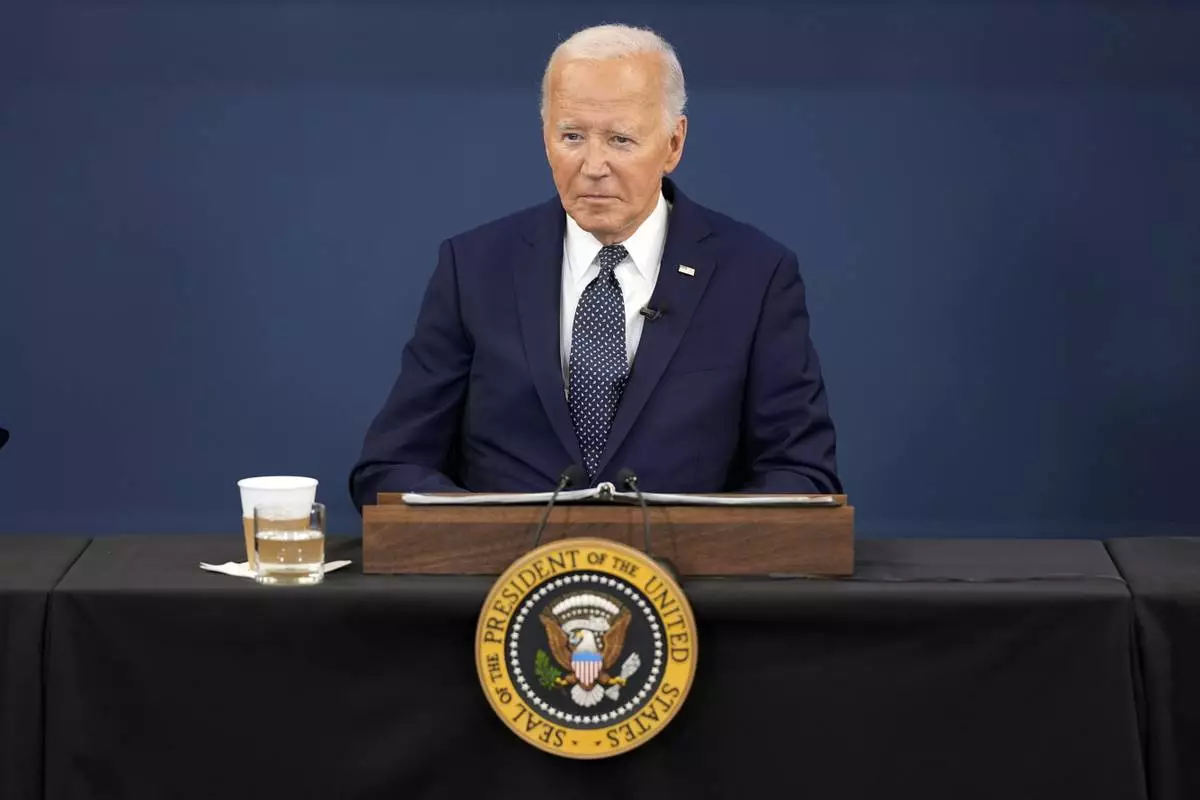
President Joe Biden listens during a visit to the D.C. Emergency Operations Center, Tuesday, July 2, 2024, in Washington. (AP Photo/Evan Vucci)


